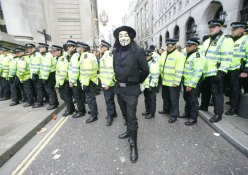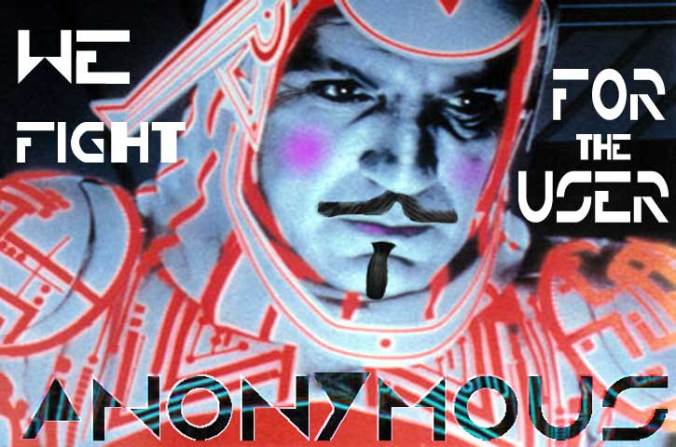Permaculture Politics
Cyberwar at it’s finest:
Biometric surveillance, nude TSA body scans, ubiquitous CCTV spying, unlimited wiretapping, social profile mapping, and zero identity privacy, these are the some of the things that bother me about living in our post modern high tech world. What they all have in common is that they are all forms of very detailed and sensitive information. Information readily becomes knowledge, knowledge is power, and power once centralized will inevitably be abused. Knowledge can also be used as a effective counter balance to power as well. Governments routinely overstep their bounds by spying on private citizens even going so far as to steal their identities for covert hit ops like the Isreali Mossad did in Dubai back in February. When the forces behind governments oversteps their bounds they don’t arrest themselves, they rarely apologize, and they automatically move to cover up their transgressions as quickly and quietly as possible. Citizens are the first and last check of power and our consent or dissent shapes the laws, institutions, and society around us.
The coordinated “operation payback” DDOS attacks that we’ve seen by the collective consciousness known as Anonymous in revenge against the attempted shutdown of filesharing sites and wikileaks are just the beginning of a much larger reckoning with power. Sophisticated conflicts will continously spill back and forth over the digital boarder at a unprecedented rate in a constant battle for the power to influence the “mindshare” and attention of global populous. The philosopher Foucualt had this to say on the subject of power,”

“Power is not an institution, and not a structure; neither is it a certain strength we are endowed with;
it is the name that one attributes to a complex strategical situation in a particular society.”
The Pirate Party, Wikileaks, and Anonymous share one very important thing in common, they’re not scared. It takes a lot of courage to not be afraid to collectively challenge the seemingly largest power structures we know, because even though the challenge may start in the digital world, the consequences are often quite material and personal. Currently, we face a very grave situation regarding the foundations of the fragile concept we call democracy. The traditional channels of politics are not wide enough to catch and pacify the raging rivers of the vast populations of global dissent; the “banks” of the status quo refuse to budge, to adapt, and corruption is rampant. This is extremely dangerous because it makes any dissent weather legal or not, dangerous as well. If the privacy needed in order to avoid retaliation when dissenting is destroyed, then dissent itself is destroyed, and hence all dissenters will eventually be equated with criminals. This is exactly what we’re seeing all around us and in every country.
From this struggle to defend dissent and to renew the freedoms most agree are sacrosanct new autonomous forms of organizing are emerging and mainstream people are taking notice. We need innovation in social structure, in debate and dialog, and in collective governance if we are to avoid undesired, ineffective, and worst of all, oppressive outcomes. Tomorrow the noble piece prize will be awarded in absentia to imprisoned Chinese dissident Liu Xiaobo. Liu was charged with “inciting subversion” for merely circulating a petition for political reform. Hopefully, anonymous and other free speech activists will work in solidarity on this issue as well others, for solidarity is our ultimate tactic, but having the numbers will be the ultimate weapon, don’t be afraid…..
Punk and permaculture have been empowering forces in my life what things in your life are empowering for you?
Please leave comments and listen to the funny call below:


I’ve been researching one of the oldest forms of social organizing, the Benevolent Society. In North America, they’re typically called fraternities, but a Benevolent Society attempts to do more than just host raging parties and binge drinking. A Benevolent Society works to provide a “mutual fund” that supports people when they are in need, e.g. they are unemployed, sick, going to college, etc. An example of a Benevolent Society in the United States would be the Rotary Club, Elks, or the International Order of Odd Fellows. Take this traditional model of social organizing, blend it with today’s technology, permaculture, the transition movement, the Mondragon Cooperative, and you have a robust social organizing tool that, I believe, could outlast any conventional nation-state or corporation.
But, only time will tell. Check us out at http://www.cascadiacommons.org.
LikeLike
Micro-finance gives me hope. I’ve always participated and always been able to observe it going on around me, “hey could I borrow 5 bucks?” or “my disbursement check won’t be here for another week, could you float me with my rent?” Definitely dovetails with the idea of a Benevolent Society.
The emergence of global micro-financing enables collaboration between people in similar conditions everywhere and seems one of the only ways I can think of to insure the development of economies that reflect people doing the work they want and need. Without micro-finance and popularly developed jobs communities are left at the mercy of large industry – regaling them as heroes as they enter impoverished areas and provide jobs. But what is poverty? What is causing it? What prevents us from meeting our basic needs ourselves and shackles us to dependence?
LikeLike